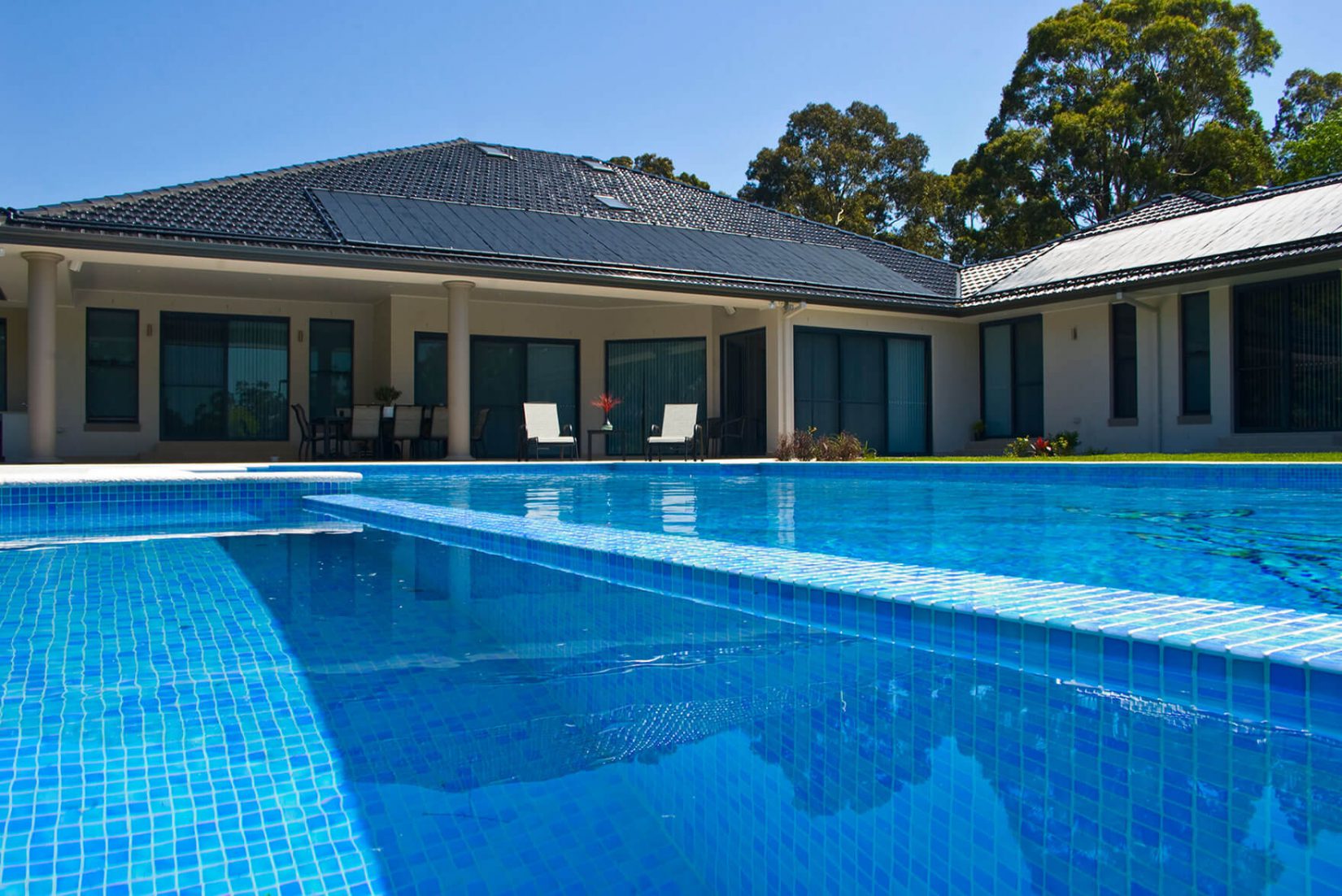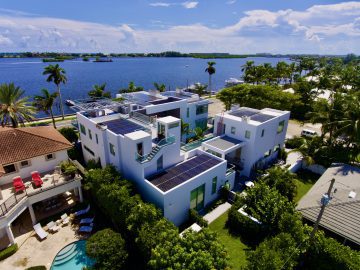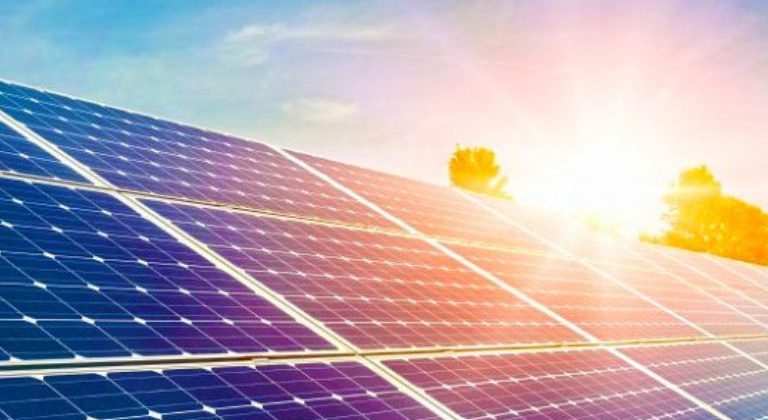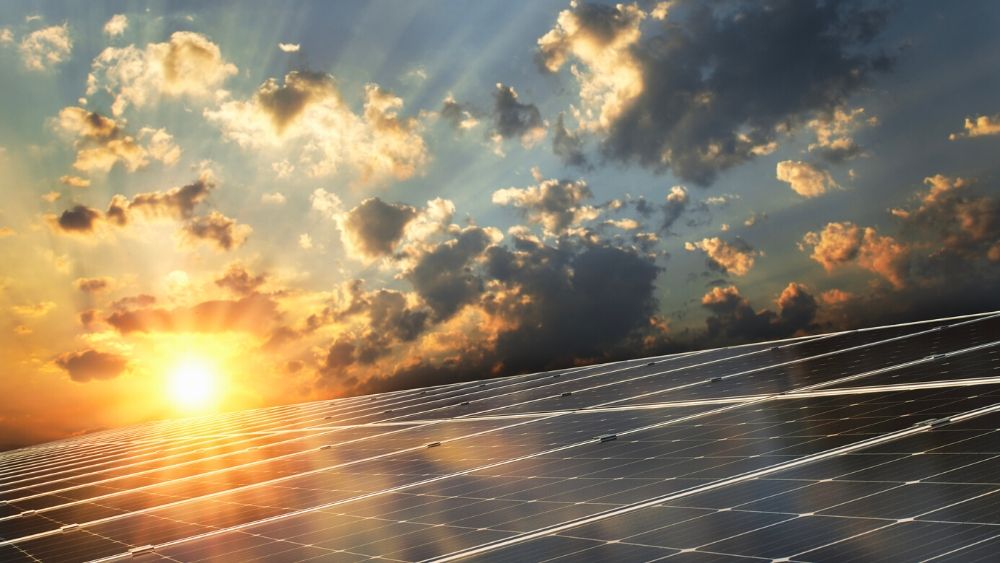Factors to Consider when Choosing a Solar Pool Heating System
Solar energy is becoming an increasingly common choice for homeowners who wish to save on their electricity bills and reduce their carbon footprint. One of the popular applications of solar power systems is heating swimming pools. Once installed, shifting to solar thermal heating allows homeowners to heat their pools year-round with minimal maintenance cost.
But how do you go about determining which solar pool heater is ideal for you? Here, we’ll take you through six crucial factors to determine the best solar thermal collectors.
Pool Size
Solar pool heaters are designed based on the surface area of pool systems rather than their volumes. As such, it is important to determine the actual surface area of your pool. The primary reason for this is simply because heat loss mainly occurs through evaporation at the surface.
We’ve provided a helpful pool-sizing diagram to help you understand how to size your pool that can be used when receiving a quote on solar pool heating system installation.
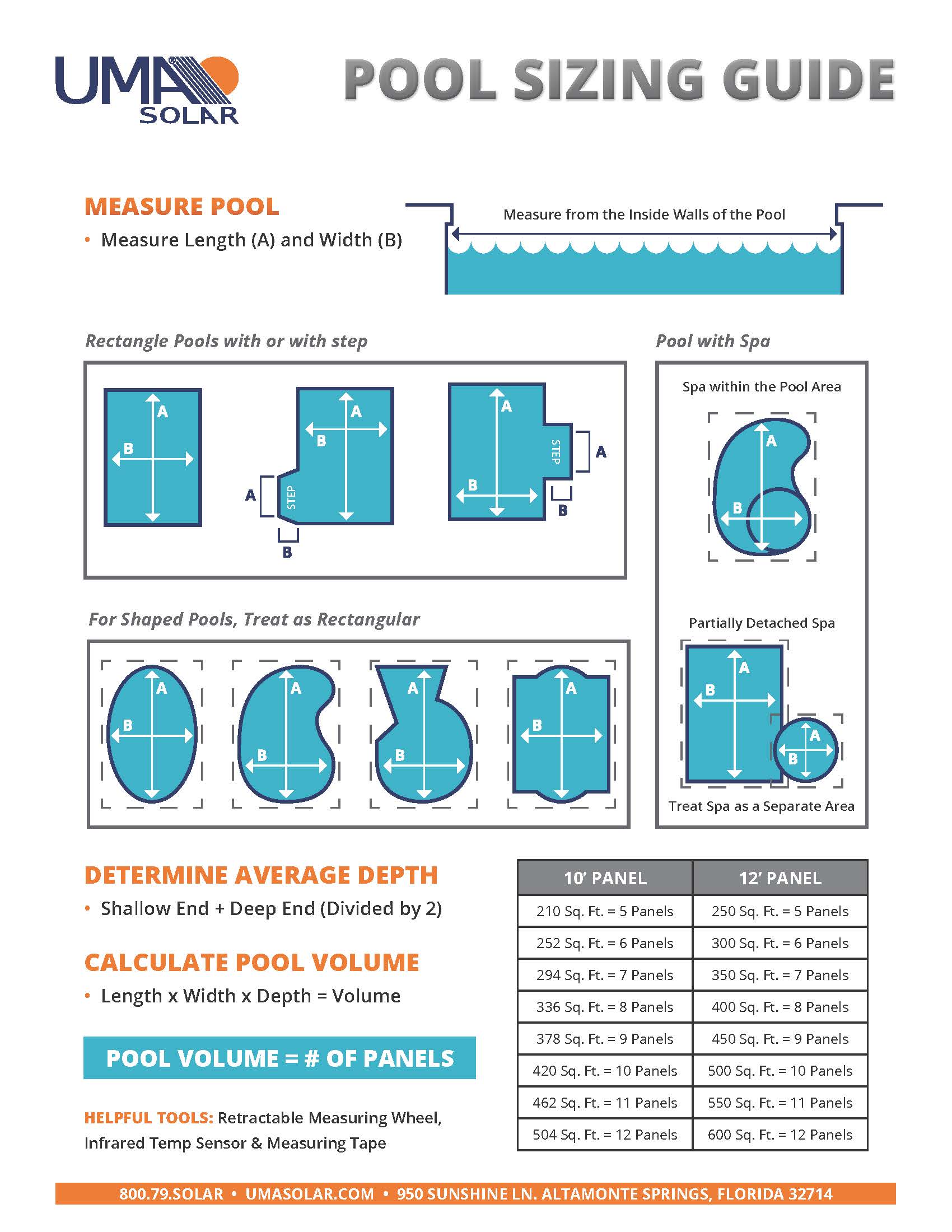
A good rule of thumb is to have at least half of your pool’s surface area equal in panel square feet. Example: A 20 × 40 pool has 800 sq. ft. of surface area, so 400 sq. ft. of solar panel would be a good target.
Your Location (Relative to The Sun)
Solar panel systems generate more power when the sun is shining. That means if you live in places that receive more sunlight hours, your solar panel system will generate enough power to heat your pool. If winter months last longer in your area, then you need to consider the number of solar panels you can install to generate sufficient power for heating when the sun is not shining. Learn more about where some of the best places in the U.S. are to have solar panels installed.
Solar Panel Efficiency
Efficiency refers to the percentage of solar energy that is being converted into usable electricity by your panel system. This efficiency is impacted by several factors, including wiring configurations, the material used to design the panels, and the amount of light reflected away from a solar cell’s surface. Where and how the solar panels are installed also impacts how much solar energy the solar thermal collectors harness. As such, it is essential to ensure the installation is done the right way for your climate.
Solar pool heaters can be operated with a solar controller, which bypasses the solar panels when conditions are not optimum for heating, such as during cloudy or rainy periods. This will increase your system’s overall efficiency.
Calculating Solar Panel Efficiency
The easiest way to determine the efficiency of your solar panel system is to refer to the specification sheet that comes with the solar panels. If you are yet to buy one but have a brand or model in mind, search for the following information:
- Area =length x width of the solar panel
- Pmax = max solar panel power (in Watts)
- 1000 = Standard Test Condition (STC) irradiance (in Watts/m2.) based on cell temperature of 25 °C
With this information, use this formula to calculate the efficiency of a solar power system that is ideal for heating your pool:
Efficiency (%) = (Pmax ÷ Area) ÷ (1000) x 100%
Most consumer solar panels on the market have an efficiency rating of 11 to 15 percent. The higher the efficiency, the better the value when it comes to your solar pool panels.
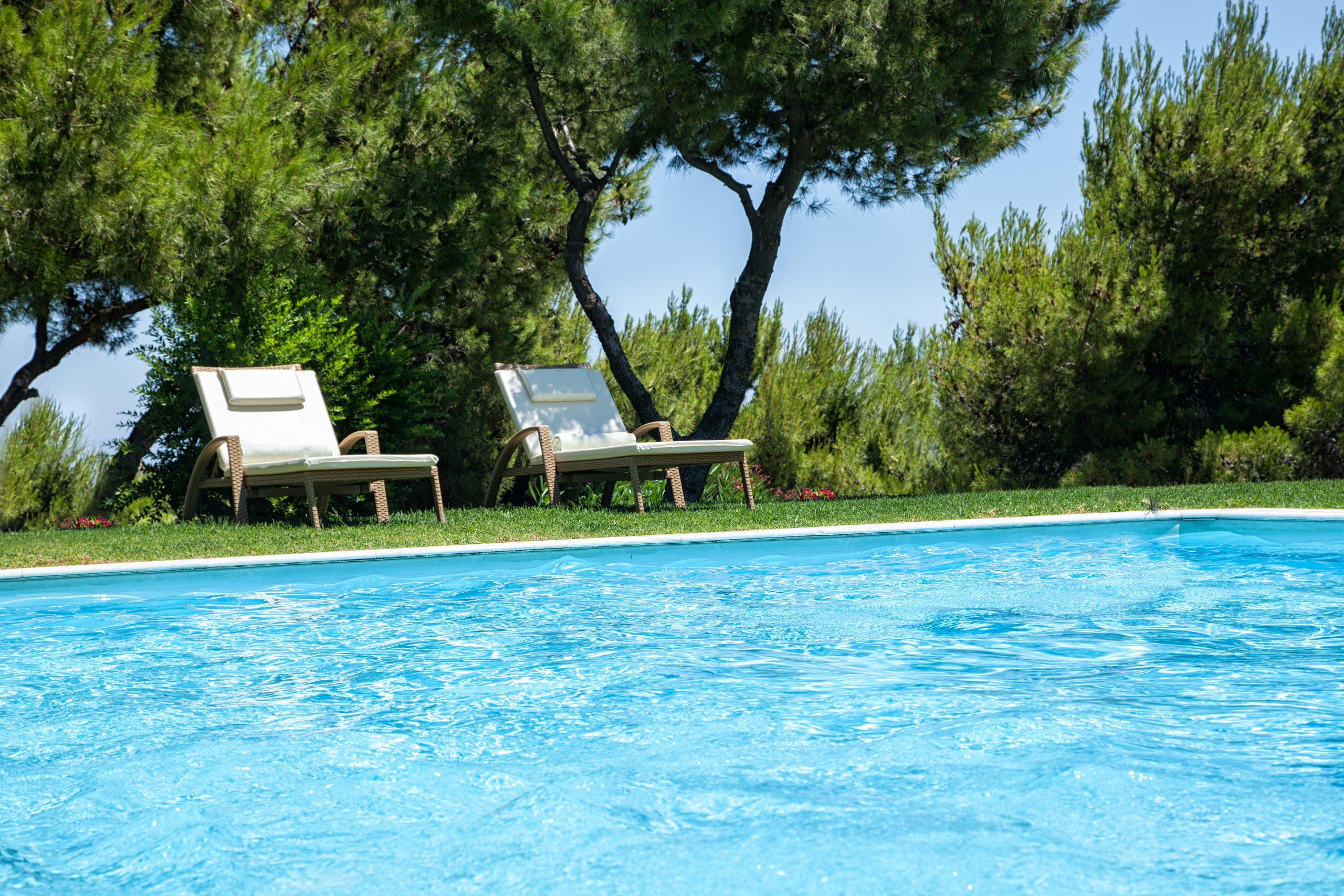
Heating Goals
How long do you plan to heat your swimming pool? Heating your pool requires a bit of planning as leaving your pool’s heaters running 24/7 is inadvisable. When you leave them running round the clock, you quickly drain the stored clean energy and put your heater to additional wear and tear.
It is advisable to turn on your heater a few hours before you start swimming, even during winter. For example, if you know you want to swim in the evening, consider turning on your solar heater in the afternoon as it will take a few hours to achieve the desired temperature. Usually, pool heating is lost during the night time when the temperature drops, but installing a pool covering it can help your pool retain 70% more heat.
Just keep in mind during winter, it may take longer to heat your water due to factors such as ambient air temperature. Once you figure out how long you need to leave your solar pool heating system running, then, it will be easier to purchase the right solar panels for the job.
Warranty Periods
When you purchase a pool solar panel system, you want to make sure you settle for one with the longest warranty period. While many solar panels are designed to last for over 20 years, it is crucial to get solar panels that have a longer product warranty as sometimes the performance of your system can deteriorate faster. Ensuring you get a long-lasting warranty will give you peace of mind in case your solar panel system falls below the level of performance you need.
Ready to Learn More About Pool Solar Panels?
At UMA Solar, we provide a full range of solar solutions and high-quality solar products for residential homes at the best prices.
To find out more about UMA, and how we can help you buy your solar pool panels today, take a look at our resources page for more info or browse out our tips for investing in a solar pool heating system.
